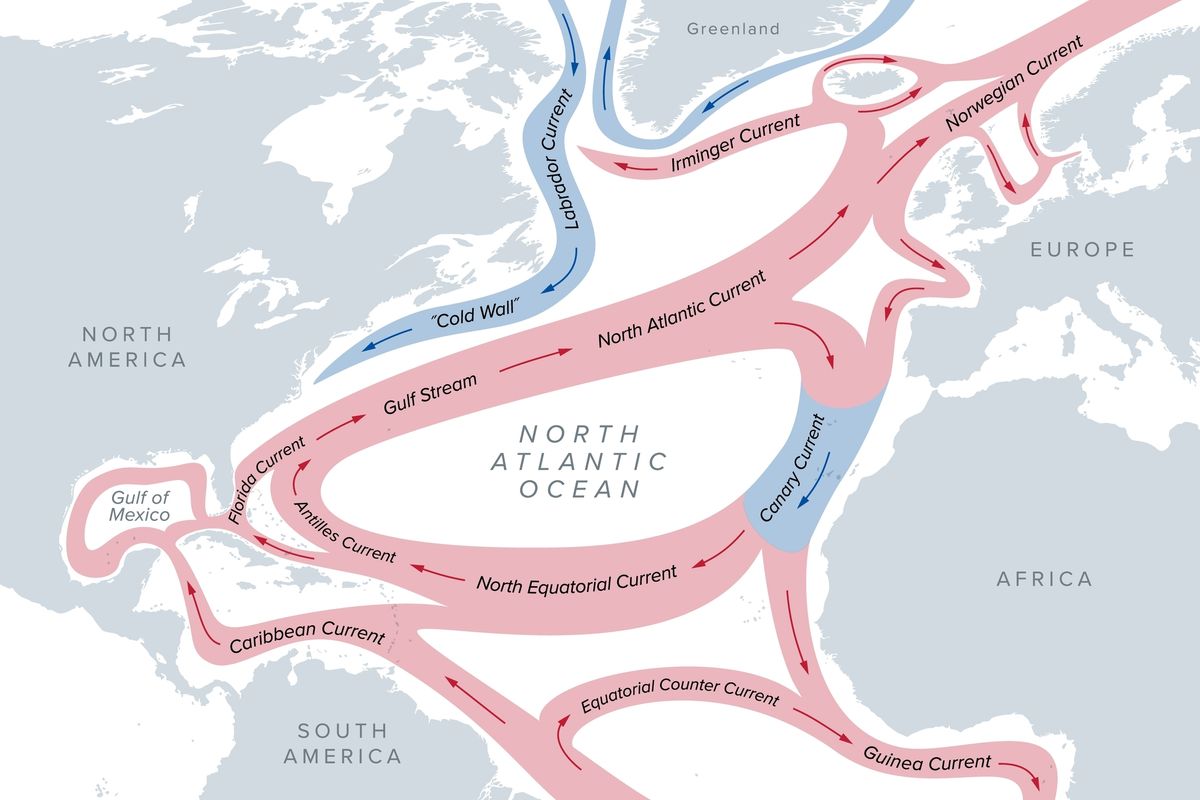Forty-four of the world’s leading climate scientists have called on Nordic policymakers to tackle the potentially imminent and “disastrous” collapse of the Atlantic Ocean’s main currents.
In one open letter published online Monday (Oct. 21), University of Pennsylvania climatologist Michael Mann and other prominent scientists say that the dangers of weakening of the ocean circulation in the Atlantic are greatly underestimated and require urgent action.
The currents in question are those that form the Atlantic Meridional Overturning Circulation (AMOC), a giant ocean conveyor belt that spans the Gulf Stream and transports vital heat to the Northern Hemisphere. Research shows The AMOC is slowing down AND may soon reach a tipping point due to global warming, throwing the Earth’s climate into chaos.
“Such a change in ocean circulation would have devastating and irreversible impacts especially for the Nordic countries, but also for other parts of the world,” the scientists wrote in the paper. The Nordic countries include Denmark, Iceland, Norway, Finland and Sweden.
Related: Michael Mann: Yes, we can still stop the worst effects of climate change. Here’s why.
According to the paper, a collapse of the AMOC would lead to severe cooling and extreme weather in the Nordic countries. This would magnify and deepen a strange “cold spot” it has already developed over the eastern North Atlantic due to the deceleration of heat-carrying currents. Ocean collapse currents are also likely to precipitate climate impacts throughout the Northern Hemisphere. threatening agriculture in Northwestern Europeaccording to the letter.

Other regions would also feel the effects, the scientists said. If AMOC stops, it will stop cause a southward shift in tropical monsoon systems — with catastrophic consequences for agriculture and ecosystems. Stalled ocean currents could also further raise sea levels along the US Atlantic coast and send marine ecosystems and fisheries into a state of “overturning.”
Without urgent climate action, The AMOC may collapse in the coming decadesalthough there is great uncertainty in predicting timelines, according to the paper. The last one REPORT from the Intergovernmental Panel on Climate Change (IPCC) states that “there is moderate confidence that the Atlantic Meridional Overturning Circulation will not suddenly collapse before 2100”, but scientists say this is an underestimate.
The IPCC’s assessment is not only inaccurate, but also disturbing, according to the paper.
“The purpose of this paper is to draw attention to the fact that only ‘medium confidence’ in the non-collapse of the AMOC is not reassuring and clearly leaves open the possibility of an AMOC collapse during this century,” the scientists wrote. “Even with a medium probability of occurrence, given that the outcome would be catastrophic and affect the entire world for centuries to come, we believe that more must be done to minimize this risk.”
The scientists addressed the letter to the Nordic Council of Ministers, an intergovernmental forum tasked with fostering cooperation between the Nordic countries. They urged policymakers to seriously consider the risks posed by an AMOC collapse and to increase pressure on international partners to stick to the targets of the 2015 Paris Agreement, which aims to keep average global temperature increases to 2.7 degrees Fahrenheit (1.5 degrees Celsius) above. pre-industrial levels.
